Mental Health Applications
Under the Mental Health and Cognitive Impairment Forensic Provisions Act 2020 (NSW), the Local Court is empowered to divert an accused person from the criminal justice system into the care of a mental health professional. Prior to 2020, diversion was referred to as a “Section 32” application and relied on similar legal principles for diversion.
If you are successful in a Section 14 application, the criminal charges for which you are accused will be dismissed and no conviction is recorded. This order is usually made on the condition that you follow through with a Mental Health Plan under the supervision of a mental health professional. In some cases, diversion may be successful without these conditions.
What is a Section 14 Application?
A Section 14 application is made under the Mental Health and Cognitive Impairment Forensic Provisions Act 2020 (NSW) and allows the discharge of an accused person from the criminal justice system into the care of a mental health professional.
Pursuant to Section 12(1) of the Mental Health and Cognitive Impairment Forensic Provisions Act 2020 (NSW) :
-
A Magistrate may make an order under this Division or adjourn proceedings if it appears to the Magistrate that the defendant has (or had at the time of the alleged commission of the offence to which the proceedings relate) a mental health impairment or a cognitive impairment, or both.
How does a Magistrate determine if a Section 14 is appropriate?
To guide the Magistrate in assessing the appropriates of diverting the accused, 8 factors contained in section 15 of the Act are often considered.
Section 15 states:
(a) the nature of the defendant’s apparent mental health impairment or cognitive impairment,
(b) the nature, seriousness and circumstances of the alleged offence,
(c) the suitability of the sentencing options available if the defendant is found guilty of the offence,
(d) relevant changes in the circumstances of the defendant since the alleged commission of the offence,
(e) the defendant’s criminal history,
(f) whether the defendant has previously been the subject of an order under this Act or section 32,
(g) whether a treatment or support plan has been prepared in relation to the defendant and the content of that plan,
(h) whether the defendant is likely to endanger the safety of the defendant, a victim of the defendant or any other member of the public,
(i) other relevant factors.
Whilst the above mentioned factors are crucial in determining the appropriateness of diverting the accused, the Magistrate may also consider other relevant factors.
The Importance of a well written Psychological Report
What happens if breach my mental health care plan?
If your discharge is conditional on the successful compliance of your mental health care plan, you will need to follow the directions of the treating mental health professional. Failure to comply could result in the Court revoking the order and dealing with your matter in accordance with the criminal law.
Navigating the criminal justice system can be overwhelming, especially if you’re dealing with mental health challenges. At Barsha Defence Lawyers, we understand the complexities of mental health and the law. That’s why we’re here to help you understand and pursue a Section 14 application under the Mental Health and Cognitive Impairment Forensic Provisions Act 2020 (NSW).
A Section 14 application allows the court to divert an accused person from the criminal justice system into the care of a mental health professional. If successful, the charges against you will be dismissed, and no conviction will be recorded. This outcome is usually contingent upon following a mental health care plan supervised by a qualified professional.
To determine if a Section 14 application is appropriate, the court considers factors such as the nature of the mental health impairment, the circumstances of the alleged offence, the defendant’s criminal history, and more. A well-written psychological report prepared by a qualified expert is crucial in supporting your application. Our team can connect you with trusted psychologists and psychiatrists who can provide comprehensive assessments and reports tailored to your needs.
It’s important to understand that compliance with your mental health care plan is essential. Failure to follow the plan could result in the court revoking the Section 14 order and dealing with your case through the traditional criminal process.
Do you require assistance with making a Section 14 Application?
If you or someone you know is facing criminal charges and may benefit from a Section 14 application, don’t hesitate to contact Barsha Defence Lawyers. Our experienced criminal defence lawyers have a proven track record of success in making Section 14 applications and advocating for the rights of our clients. Schedule a free consultation today to discuss your options and start building your defence strategy.
If you or someone you know has been charged with a criminal offence and would like to discuss a potential Section 14 application, contact Barsha Defence Lawyers today. Our experienced criminal lawyers specialize in making Section 14 applications in court, ensuring the best possible outcome for your case.
